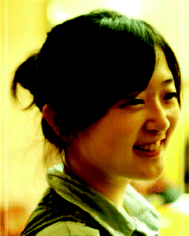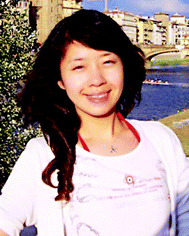News from Organic Chemistry Frontiers
Daping Zhang , Wenjun Liu , Fangjie Chen , Ying Liu and Linda Chen
Welcome to issue 1 of Organic Chemistry Frontiers (OCF) as it enters its third year of publication! We are delighted to report that the journal continues to prosper with increased submissions, higher quality publications and growing impact on the global chemistry community.In 2015, OCF received submissions from 30 countries and around 50% of them were accepted and published. The most cited paper came from Guanyinsheng Qiu and Jie Wu, reviewing recent developments on “Transition metal-catalyzed direct remote C–H functionalization of alkyl groups via C(sp3)–H bond activation” (Org. Chem. Front., 2015, 2, 169, DOI: 10.1039/C4QO00207E). The selection of the most read articles of 2015 presented in Table 1 is reflective of the journal's aspiration in publishing significant and novel ideas in synthetic organic chemistry. Whilst reinforcing a strong presence in its core area, the journal is also embracing research on supramolecular chemistry and functional organic molecules. The latest examples include “Fluorescent nanoassemblies between tetraphenylethenes and sulfonatocalixarenes: a systematic study of calixarene-induced aggregation” (DOI: 10.1039/C5QO00326A) from Dong-Sheng Guo et al. and “Open-cage fullerene with a stopper acts as a molecular vial for a single water molecule” (Org. Chem. Front., 2015, 2, 1500, DOI: 10.1039/C5QO00265F) from the group of Liangbing Gan.
| Transition metal-catalyzed C–H bond functionalizations by the use of diverse directing groups, Zhengkai Chen, Binjie Wang, Jitan Zhang, Wenlong Yu, Zhanxiang Liu and Yuhong Zhang, Org. Chem. Front., 2015, 2, 1107–1295, DOI: 10.1039/C5QO00004A, Review Article. |
| Catalytic enantioselective organic transformations via visible light photocatalysis, Chengfeng Wang and Zhan Lu, Org. Chem. Front., 2015, 2, 179–190, DOI: 10.1039/C4QO00306C, Review Article. |
| The Mitsunobu reaction in the 21 st century, S. Fletcher, Org. Chem. Front., 2015, 2, 739–752, DOI: 10.1039/C5QO00016E, Review Article. |
| Selective syntheses of leuconolam, leuconoxine, and mersicarpine alkaloids from a common intermediate through regiocontrolled cyclizations by Staudinger reactions, Zining Li, Qian Geng, Zhe Lv, Beau P. Pritchett, Katsuaki Baba, Yoshitaka Numajiri, Brian M. Stoltz and Guangxin Liang, Org. Chem. Front., 2015, 2, 236–240, DOI: 10.1039/C4QO00312H, Research Article. |
| Cu- or Fe-catalyzed C–H/C–C bond nitrogenation reactions for the direct synthesis of N-containing compounds, Yujie Liang, Yu-Feng Liang and Ning Jiao, Org. Chem. Front., 2015, 2, 403–415, DOI: 10.1039/C4QO00350K, Tutorial Account. |
| Polycyclic imidazo[1,2-a]pyridine analogs – synthesis via oxidative intramolecular C–H amination and optical properties, Łukasz Kielesiński, Mariusz Tasior and Daniel T. Gryko, Org. Chem. Front., 2015, 2, 21–28, DOI: 10.1039/C4QO00248B, Research Article. |
Due to the consistently high quality and geographical diversity of OCF publications, the journal has been indexed by Chemical Abstracts and Scopus database from its inception. Moreover, the journal was also accepted into Thomson Reuters products and services including the Science Citation Index-Expanded (SCIE), the Web of Science, ISI Alerting Service and Current Contents/Physical, Chemical & Earth Sciences (CC/PC&ES). In 2016 OCF will receive its first journal impact factor from Thomson Reuters. We believe this is great news for ourselves and our authors.
In 2015 we continued to refine and review our author guidelines. We became more selective on review type submissions. Authors are now asked to contact the Editorial Office (OrgChemFrontiersED@rsc.org) before submitting review type articles if they are not solicited. The aim of this effort is not to set a barrier for your submissions, but to ensure that timely topics are covered so as to guarantee the broadest possible readership for our reviews. Lately, we received a number of manuscripts that were not found to be suitable for other Royal Society of Chemistry journals and were subsequently submitted to OCF. We understand that the internal transfer system amongst Royal Society Chemistry journals may not satisfy every need of our authors and they are welcome to explore more opportunities in any journal that is of interest to them. However, we strongly encourage authors to consult with the OCF editorial office in advance for such submissions. Our editors will provide professional suggestions promptly on the suitability of your research work for OCF and assist you with the next steps when necessary.
2015 also brought changes in our Associate Editor lineup. Professor Frank Würthner from the University of Würzberg joined our Editorial Board in July. He is internationally recognized for creative work in functional organic materials. Frank will help shape the quality and scope of OCF, significantly raising its visibility in the community of organic materials and fulfilling the aim of OCF in becoming a leading journal in the field. If you would like to know more about Frank and his research please read his profile article from issue 9, volume 2 (Org. Chem. Front., 2015, 2, 1011, DOI: 10.1039/C5QO90034D). Following the first two successful Organic Chemistry Frontiers International Symposia held in Shanghai and Hongzhou in 2014 and 2015 respectively, the third symposium will take place at the University of Oxford on the 1st March 2016 with the support of Professor Stuart Conway.
The OCF Editorial Board members together with local speakers will deliver a collection of informative talks on cutting-edge contemporary research topics. People working in organic chemistry or interested in meeting leading researchers in the area are welcome to attend for free. Please join us at the 2016 Organic Chemistry Frontiers International Symposium!
Being a truly community-oriented journal, OCF cherishes its collaborations with established scientists and emerging leaders in the field. The inaugural themed collection dedicated to up-and-coming researchers working at the forefront of modern organic chemistry has been well received by the global chemistry community. Latest contributions to this “Emerging Investigators” web collection are free to read and download until the end of 2015 (http://rsc.li/1Nn9hYe).
Finally, we would like to acknowledge with sincere gratitude all our authors, reviewers and readers, as well as members of the OCF Editorial and Advisory Boards. Thank you for your generous support and commitment to the sustainable development of OCF! It is also a nice opportunity to introduce the Royal Society of Chemistry staff in the China Editorial Office, who make OCF great by providing timely support to every customer. Hear their thoughts on the development of OCF and the broader scholarly publishing.
Executive Editor
“Open Access is the new trend of STM publishing. It makes the advanced chemical sciences available to the public. Readers can benefit from this publishing model with minimum cost.”
Deputy Editor
“A journal’s reputation, relevance to certain disciplines and the quality of the peer-review process are the top 3 driving forces when authors choose where to publish. As editors of Organic Chemistry Frontiers, our main job is thus to ensure the journal is seen as a place for the best science, a bridge that connects authors with their peers and a partner that can be trusted for the highest ethical and production standards.”
Publishing Administration Coordinator
“With the aim of providing the best customer service, we aspire to respond to queries from authors, referees and readers promptly and take an active approach to solving their problems.”
Publishing Administrator
“If you would like to serve a high impact journal, if you have an aspiration to give back to the chemistry community and to make the world of chemistry better, please become a referee for Organic Chemistry Frontiers!”
Publishing Administrator
“The quality of a referee report is a key factor in the peer-review process. A good report will provide a valuable assessment of the research work and help editors to make fair decisions.”
News from the Frontiers journal collection
We are delighted to introduce the newly launched Materials Chemistry Frontiers, the third title in the enterprising Frontiers family – a truly international, world-class journal series directed by leading Chinese academic institutions and published in partnership with the Royal Society of Chemistry.Materials Chemistry Frontiers is endorsed by the Institute of Chemistry, Chinese Academy of Sciences. The journal will focus on the synthesis and chemistry of exciting new materials, and the development of improved fabrication techniques.
Materials Chemistry Frontiers will open for submissions in 2016. Be the first to hear the latest news – sign up to e-alerts (http://rsc.li/alerts) today. All content published in the first two volumes in 2017 and 2018 will be free to access upon registration – offering authors maximum exposure for their work.
Find out more about Materials Chemistry Frontiers from http://rsc.li/frontiers-materials.
| This journal is © the Partner Organisations 2016 |





